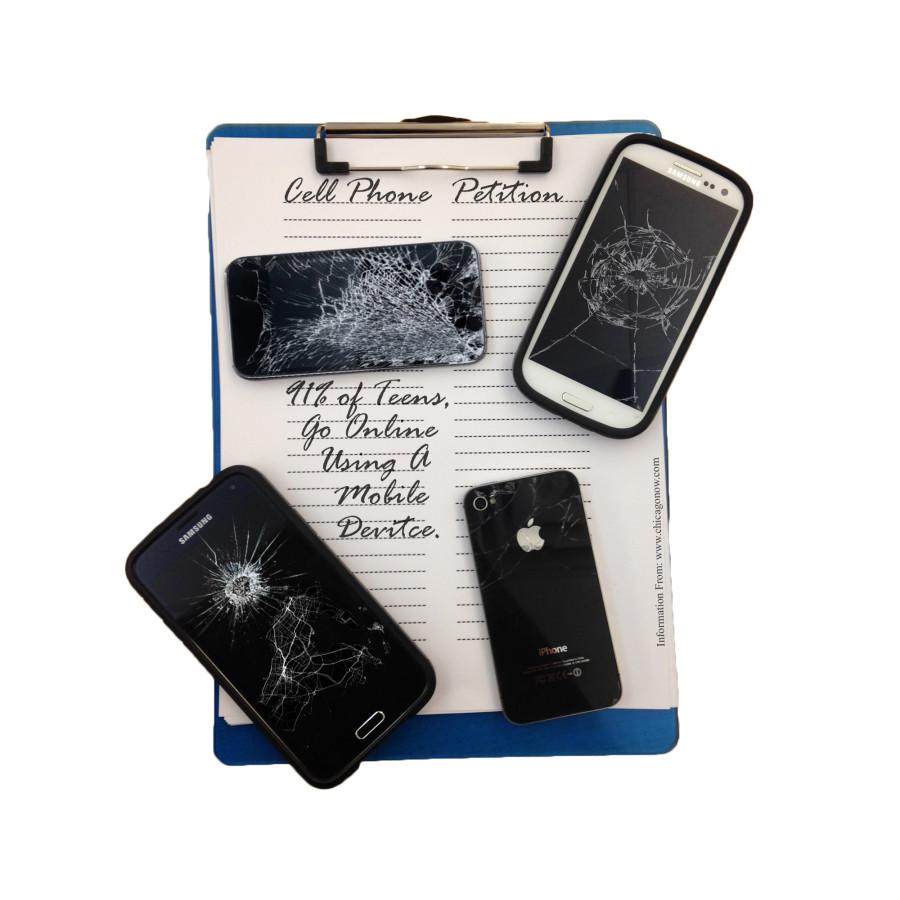New cell phone policy limits learning, frustrates students
September 1, 2015
Officially, District 202 has always frowned upon the use of electronics. However, for the past few years, Plainfield North has allowed cell phones to a certain degree: most teachers permitted students to listen to music in class and in study hall, others allowed their students to take notes on a tablet, and some encouraged the use of educational apps and websites.
Those days are over. This year, students are not allowed to possess any electronics in school. The only exception is study hall where students are allowed to use mp3 players to listen to music.
“The biggest concern [with electronics] is network security. Students are able to access websites that they-and teachers- should not have access to- like Facebook. Overall, they are just huge distractors,” said Superintendent Dr. Lane Abrell.
It’s true that electronics can serve as distractors. However, by banning them altogether, it makes students want to use them more than they did before.
“I just feel so much more tempted [to use my phone] now because the policy makes them so forbidden,” said Junior Alexis Metcalfe.
The way that teachers teach and students learn is constantly evolving. According to a Pew Research Study, seventy three percent of Advanced Placement and National Writing Project teachers say their students use phones in the classroom or to complete assignments.
“I believe technology is a growing part of our culture and should be allowed in the classroom. It allows for classes to be paperless, work efficiently, and share ideas faster,” said Senior Drake Taxon.
With only fifty six minutes per period, there’s almost always some part of the lesson that is shortened or simplified in the interest of time. Educational websites and apps can help bridge the gap and create understanding.
“I do see a benefit to using electronics because we can search stuff that the textbooks might not have,” said Freshman Maddie Fegter.
Some schools encourage, and, in some cases, provide electronics for educational use. Neuqua Valley allows cell phone use in the hallways and at lunch, and St. Francis High School in Wheaton is now including Microsoft Student Pros in their tuition.
Dr. Abrell says Plainfield is working to transition its schools into a more technology based curriculum.
“We were able to buy laptops for all the teachers this past year. Getting laptops or tablets for students hasn’t always been successful. LA Public Schools provided laptops for all their students, but they eventually had to get rid of them because there was so many problems,” said Dr. Abrell.
Students don’t necessarily need their own technology, though. Dan Domenech, executive director of the American Association of School Administrators, says most students he sees in his visits to school across the country have their own phones.
“Most people are now coming to school with a computer in their pocket,” said Domenech.
Students are frustrated with North’s lack of progress with technology, and some have decided to take action.
“There are a lot of students at Plainfield North who disagree with the cell phone policy, so I thought I’d take the liberty to start a petition,” said Senior Sean Kuriger.
So far, the petition has around 850 signatures from students, parents, and staff members. Kuriger says that everyone that has participated has cooperated and was enthusiastic.
“There’s a board meeting on September 14, and I’m going to attend so I can spread the word,” said Kuriger.
It’s understandable that incorporating technology into the curriculum at North is difficult. However, the current electronics policy is unrealistic, unfair, and will backfire on the district in the long run.







